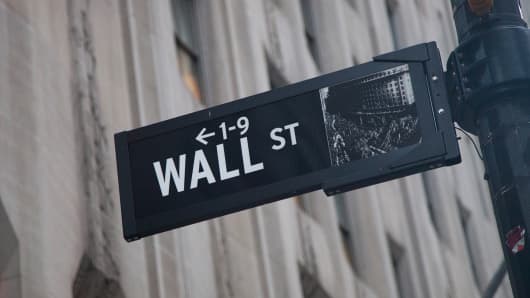In 1985, if you had an MBA, it was your ticket to a career in finance or management. Yet beginning in the 90s and into the new millennium, as the price of this degree increased and employment guarantees faded, MBAs seemed to have lost their luster — or have they?
Yes and no. No, an MBA is not a prerequisite to success. No, not everyone in management needs to spend two years on an expensive post-graduate degree. However, over the years the value of an MBA has remained remarkably high for one particular segment of the marketplace: Investment banking.
Read MoreThe Top 10 lies told on Wall Street
Before I was a senior client partner at Korn Ferry, earlier in my career I worked at Goldman Sachs. I rose up the ladder in internal investment banking, global management and strategy — without an MBA. In fact, I don't even have a business degree. I have my B.A. in political science from Colgate University. So how did I get a job on Wall Street? Goldman valued me because I was president of the student body — not because of my finance skills. In fact, in my undergraduate studies, I took only one economics class.
This being said, I was very much the exception at Goldman. Of course there are other examples of very talented and successful investment bankers, who were promoted up without an MBA, but it is not the norm.
Here's proof:
Right now, Korn Ferry is conducting an executive search for a senior-level investment banker at one of the premier firms. In reviewing the pool of possible candidates, only two of the top 25 candidates do not hold an MBA.
Read MoreThe 12 types of people on Wall Street
At the junior level, to find young candidates who have stellar business-analytical fundamentals, leading investment banks recruit from the same elite business schools every year: Harvard, Columbia, NYU, Stanford, Wharton, Dartmouth etc.
Though career paths can vary wildly, generally investment bankers are hired as Associate 1, promoted to Associate 2, then 3. Then — assuming they're still on board — Vice President 1, 2 and 3. Then Director, or Senior Vice President 1, 2 and 3, and Managing Director. It's also not uncommon that investment bankers may be groomed for the C-suite: COO, CFO or CEO at clients that they advised over the years.
For all its insane 100-hour weeks and post-crisis job insecurity, investment banking is still as competitive as ever. Top banks need people who understand business operations as well as financial analysis, because this is the nuts and bolts of what investment bankers do: advise on the buying and selling of companies, capital raising and public offerings.
Read MoreWhy is it so hard for millennials to get a job?
So maybe you're considering a career on Wall Street. Maybe you're not sure in what capacity. Here's the truth: An MBA resets a career. You could have been an art history major at a liberal arts college — maybe even worked a few years at a gas station. If you earned an MBA subsequently, chances are, Wall Street will look at your candidacy more favorably.
To be clear, there are functions on Wall Street for which an MBA is not as common such as in the sales, trading and portfolio management functions. Nor is this an important credential if you work at a hedge fund. It is also not terribly useful in private wealth management. In fact, for the latter, it is much more important to be a Chartered Financial Analyst (CFA) than to have a masters in business administration.
However, as an analyst, an MBA will help provide a framework to understand how businesses operate and it will put you in the recruiting pool for top investment-banking associate roles. An MBA will provide the case study fundamentals by which to analyze, sell and/or run a business. An MBA inculcates you into the language and strategy of buying, selling, analyzing and managing a business.
The bottom line is that an MBA is table stakes for investment bankers — and you can take that to the bank.
Commentary by Noah Schwarz, senior partner in Korn Ferry's global financial-services practice.


